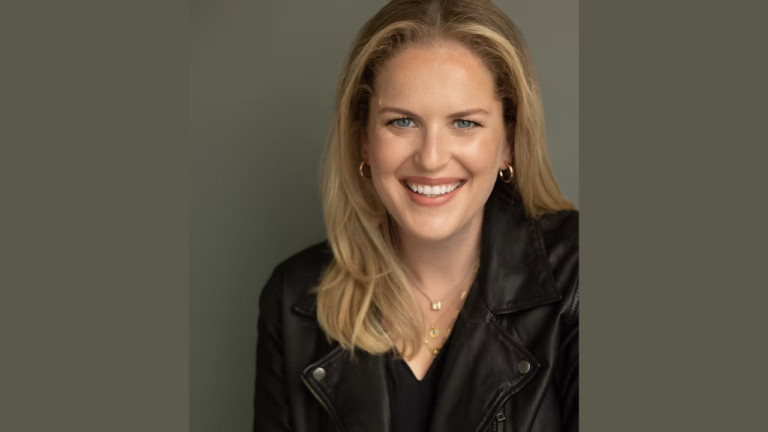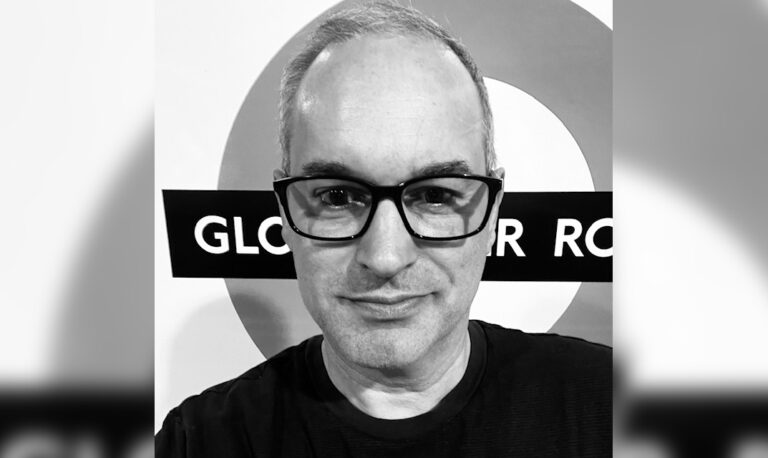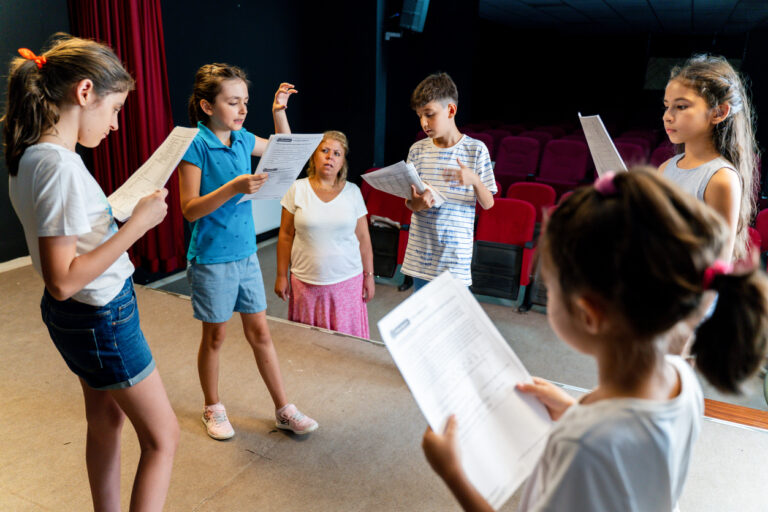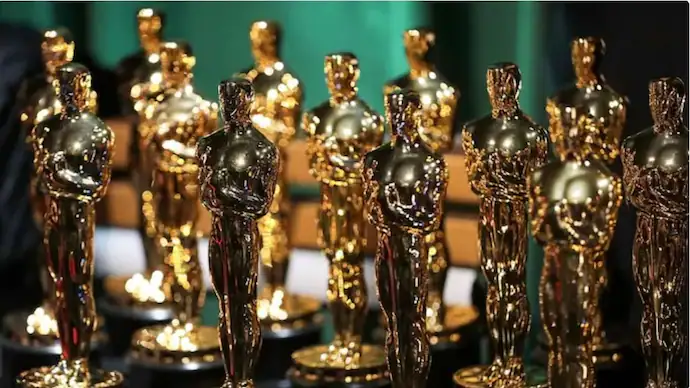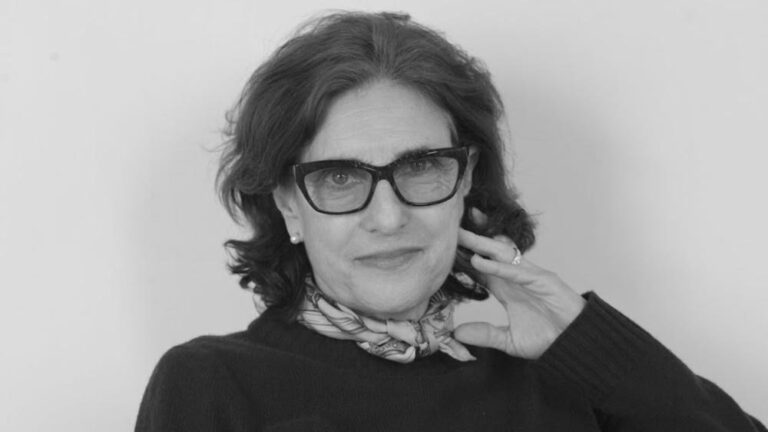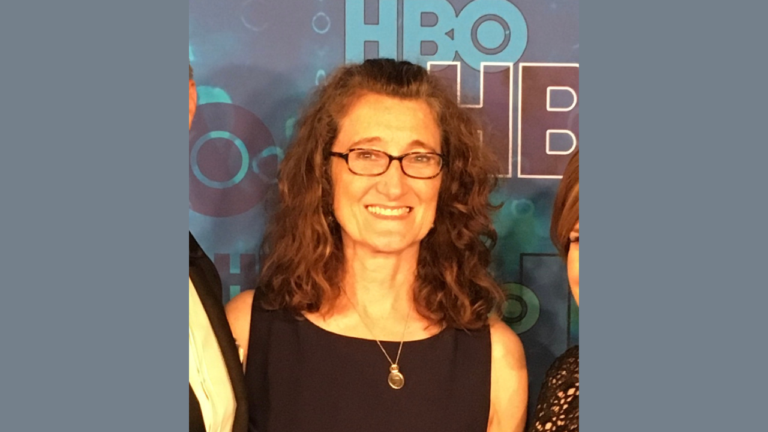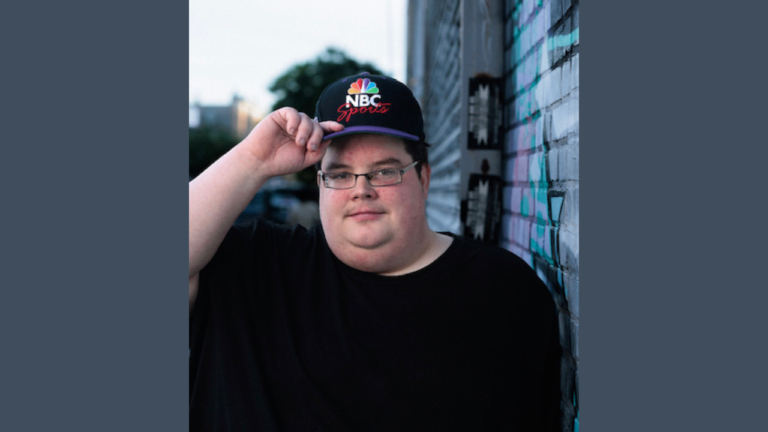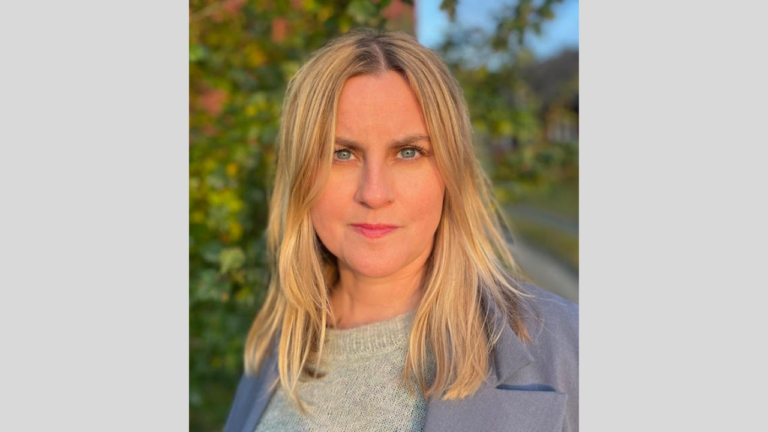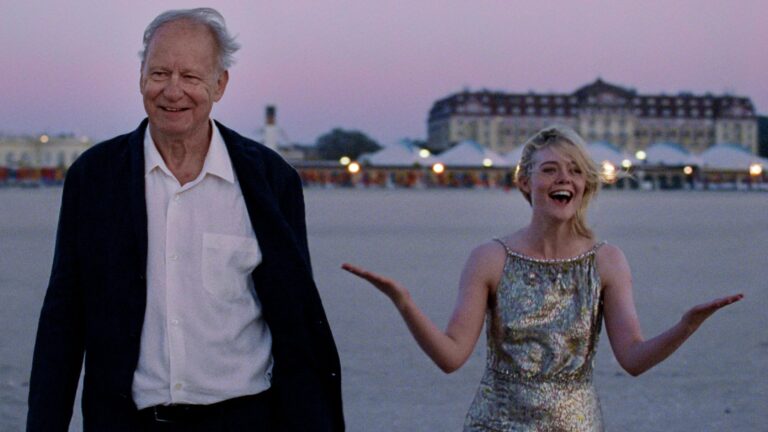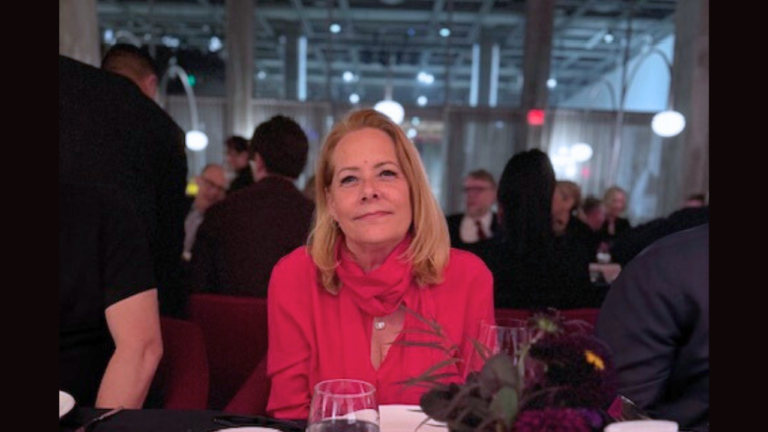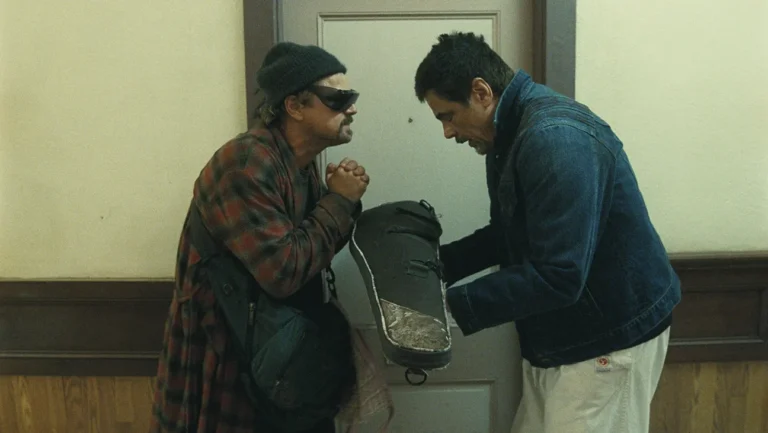Dean Imperial does not think of himself as an actor, and yet, that’s how I know him.
We met 17 years ago, working together on a web series I co-created called Kyle Piccolo: Comic Shop Therapist. He played a villain to perfection, and so I thought, sure, this guy’s a working actor. In actuality, he was a working writer who was soon working on TV shows like Imposters, Godfather of Harlem and Hotel Cocaine.
As it happens, he also did some dabbling in acting, landing the starring role in the 2020 drama Lapsis (it is well worth the $2.99 it will cost you to rent it on Amazon Prime). Imperial had made short films before, but his debut feature, Caper, just premiered at the Look Cinema in New York City, where it played to sold-out shows. It follows a group of friends trying to retrieve a phone after one of them mistakenly sends a sext to the wrong person. It’s a 21st-century After Hours, and will soon be available on VOD.
Insights From Dean Imperial
- Actors should embrace opportunities that come unexpectedly, as Dean Imperial’s acting career began by chance rather than pursuit.
- Rehearse thoroughly before shooting, even on low-budget projects, because preparation saves time and improves performance on set.
- Learn the language of directing and be open to self-directing or collaborating closely with directors to better understand and deliver desired performances.
I’ve often wondered … Dean Imperial is such a fantastic name. Is that your real name?
That’s my real name. When my great-grandfather came from Italy, they took the “e” off at Ellis Island. It was “Imperiale.” I do love my name, but it is ridiculous in some ways.
With a name like Dean Imperial, you really had no choice but to go into show business.
Probably, yeah. (Laughs)
What was it about acting that first spoke to you?
I loved movies. Seeing One Flew Over the Cuckoo’s Nest was the real turning point for me. I came home from Halloween when I was 10 or 11, and it was on Channel 11. My mother said, “You’ll love this movie. This is right up your alley.”
From that moment on, I learned how to act. I was really good at it in school, but I also figured out pretty early that I wanted to be a director. Probably at the same time as I was getting good at acting. I saw the two things as one, and I made a lot of short films in high school that I acted in, and I won some competitions in New Jersey.
I’ve never been fully committed to being an actor, even at Naked Angels, [the theater company where] I started as a writer. The two things feel connected because it’s artistically exercising your taste in some way. I always saw the things as part of the same whole.
But weren’t you making your living as an actor?
No! It’s funny, I have started acting only now. Naked Angels is what happened. I started bringing work in as a writer for a year, and then one day, I was offered a chance to act in one of the readings. Then I acted all the time there, and did readings and stuff like that, but I never made a living as an actor. It’s only in the last five years that I was cast in that movie, Lapsis.
Yeah, I loved that film. A little hidden gem of an indie.
Thanks! But virtually no acting before that. Noah Hutton is a close friend of mine, and he wrote and directed it. We made a short film together, The Woman From 43. He shot and edited the short. Then I made Hammerhead, which was a spec pilot. You have a very specific role in the making of it, actually.
What? I do?
Yeah, we bumped into each other at this indie concert in, like, 2014. I told you about this idea I had for a show. It’s about a guy who’s got a deformed head, but he decides to just go out into the world and live his life. You did that thing you do where you just said, “I like that. That’s good. Go write it.”
You said it with such conviction, it always rang in my head, because I always respected your opinion so much. That’s one of those qualifiers that helps you make a decision when it arises.
Wow. I had no idea. Glad I could help!
Yeah! (Laughs) So the planets aligned. I said, “Okay, I have this person who could finance it. This person wants to be in it,” and that was the key to me starting my career. That and an evening of one-act plays I wrote that played for a month at The Barrow Group got me my agents. It was seen by influential filmmakers who don’t make your career, but it gets you in the mix. That led to my first TV job.
Noah worked with me on it, and then in about 2017 said, “I want to make a movie. I’m writing a role for you.” All of a sudden, I go from not acting in anything professionally or ever getting paid to act outside of a workshop where you get paid 200 bucks or so, to being number one on the call sheet, and I’m in every scene except one.
It wasn’t like I was aspiring to be an actor, but I did it, and that led to another good friend of mine, Zach LeBeau, who said, “I have a role I’m writing for you.” I didn’t pursue any of these.
That leads me in a different direction. I had thought of you first as an actor, because that’s how I met you, and then seeing you in Lapsis. But you really just kind of fell into acting.
That’s exactly what it is. Writing has always been the number-one thing.
Let’s talk about the movie. It’s based on real events, so how did the story end up with you?
The stories came from two of the actors, Christopher Tamantana and Richard Cooper, who financed and produced Hammerhead. I started working in TV, and there’d be these big gaps, and we talked about doing something fast and dirty that’s a little cheaper than Hammerhead, which was expensive, relatively speaking.
Chris and I went to Fordham together, back in the 20th century. We reconnected during COVID, and it was like not even a second had passed. He said he wanted to make a short film, but I convinced him to do an 80-minute feature instead. We were just talking, and he mentioned something about this scenario with a cell phone.
I went to tell the idea to Rich, who said, “Oh my God, that happened to a guy I know.” We worked on it together to get the story right, and then I went to work for Godfather of Harlem as a writer. We worked on the script sporadically over two years, and by September of 2023, we landed the financing to be able to start the film officially. We were shooting in December, and we rehearsed that entire time with the actors.
Wait, you rehearsed for two months? That’s insane.
We did this in 15 days, so I knew everybody had to know their lines, and I had to know every single place I wanted to put the camera. The fact that it works on any level, because it started as such a trifle, is amazing. It started with the seed of a short film, and thinking, “Do we shoot this with iPhones?” But it got bigger and bigger, and I started to wonder if the story could hold an hour and a half. Is this too light for my first film?
I knew that if I could pull it off in any way, I’d have done something extreme, because it was extremely difficult to make it work. To the actors’ credit, everybody was all hands on deck. We rehearsed and rehearsed and rehearsed, and then when I was rehearsing with other people, we would send people to help actors drill their lines. I knew lines couldn’t be an issue because we didn’t have the time.
That luxury of time is not something any movie, big or small, seems to have.
No, that’s 100 percent true, but I do know [from] Sidney Lumet and Martin Scorsese and Bob Fosse, all those guys, that rehearsal is part of it. We just shot this other film, another extremely low-budget film with a cast of 15, and I said from the beginning, we must have at least three days of rehearsal.
Even if it’s paid, it will make up the time in the budget, and it was the best thing we could have done. Everyone got to bond before we shot. So yes, it’s a luxury, but I think that if I make another film, I’m going to still insist that we put it in the budget, that we must rehearse.
What I’m also curious about is, while you don’t think of yourself as an actor, you have experience in it, so how does that affect your directing?
I know the language. I know how to say what I want. I want to get to the point. We all direct ourselves and our own performances to some extent, so, yes, that helped tremendously.
With this group, we’re all very close, so I’d say I can give you the line reading if you want it. There was a lot of that, where I would demonstrate what I wanted, and everybody was cool with it. I had read that Cassavetes did that, so I thought, if he could do it, that gave us permission. (Laughs)
I can see Cassavetes’ influence on this. So will you emulate him and keep making small, personal films? Or, do you want to go bigger and make studio fare?
I’m going to cheat and say that it’s both, because the fact is, if you’re in New York City and you’ve got a circuit of friends, you can create something. It’s really about: What can I accomplish? Where can I get the money from? What can the budget handle? What actors do I have, you know? So I’ll keep working small, but I would love to work bigger.
It sounds to me like your own philosophy also doubles as advice to other young filmmakers.
Absolutely. Write to scale. If your assets are that you have great actors, or you have talented people or great personalities, and they’re willing, lean toward that asset. You have to learn how to write for what your opportunities might be.
In most cases, you can tell by a person’s intelligence if they’re able to figure it out. You have to use this fusion of being practical and being facile creatively. That’s my main advice to filmmakers. Be practical, and be facile.
Final Takeaways
Dean Imperial’s path shows that acting doesn’t always come from a lifelong plan. It can emerge naturally from other creative pursuits. His story reminds new actors that flexibility, preparation and collaboration open unexpected doors. Here are a few takeaways for anyone starting out in acting today:
- Stay open to acting opportunities even if it’s not your main focus; sometimes roles find you.
- Prioritize rehearsal time to really know your lines and build chemistry with your castmates.
- Learn some directing language to better understand what directors want and communicate clearly.
- Collaborate closely with your creative team and don’t be afraid to take direction or try different approaches.
- Use your unique background and connections to create your own chances rather than waiting for them.
You may also like:

